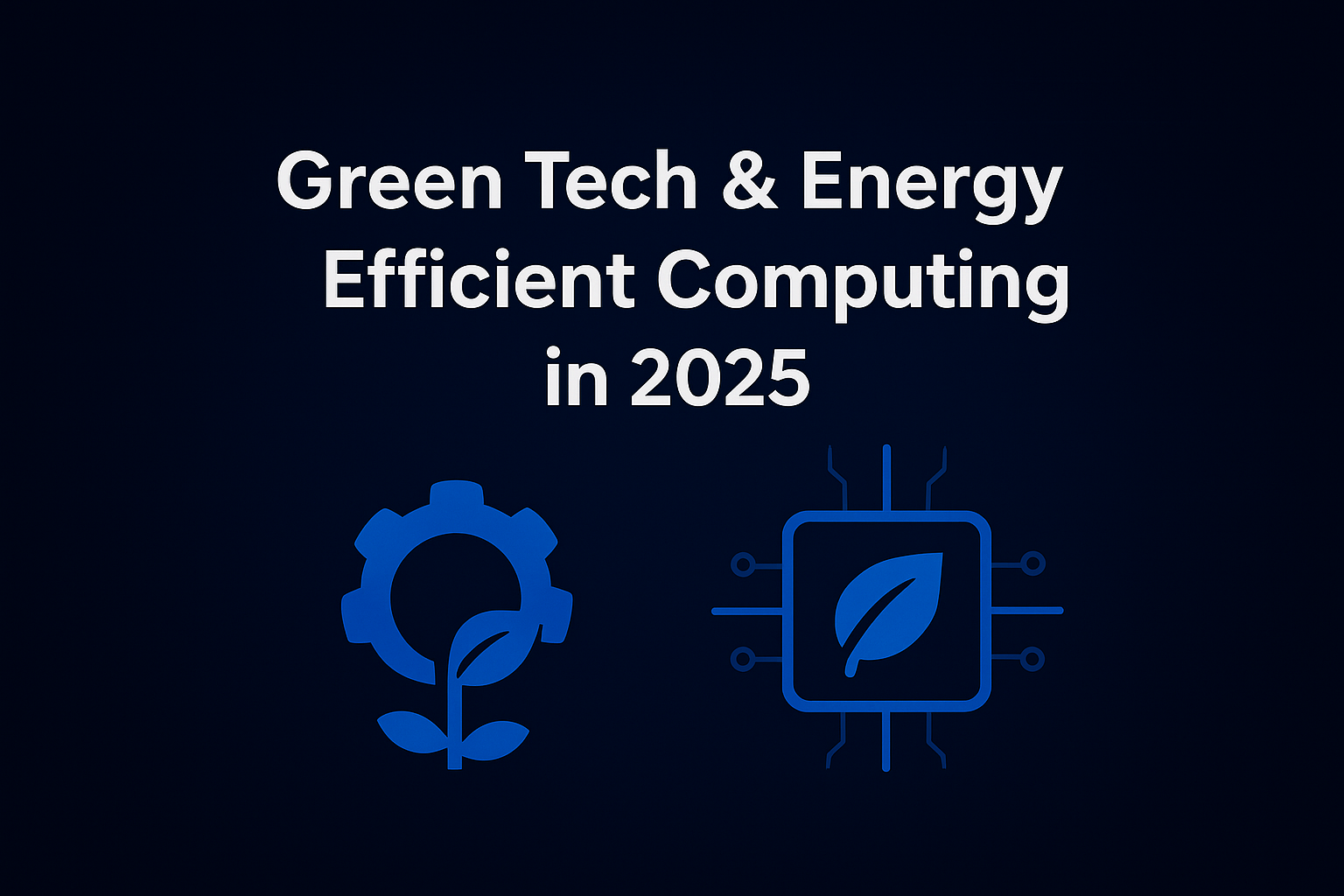Introduction
In today’s world, technology is everywhere — from smartphones to artificial intelligence. But there’s a hidden cost: energy consumption. Data centers, crypto mining, and AI training use massive amounts of electricity.
In 2025, the USA is witnessing a major shift toward green technology and energy-efficient computing. Companies are finding smarter ways to cut down energy use while still growing digitally. This is not only about saving the planet, but also about reducing costs and boosting performance.
What is Energy Efficient Computing?
Energy-efficient computing means designing computers, servers, and software in a way that:
- Uses less power
- Reduces heat generation
- Delivers the same (or better) performance
👉 Example: Google’s data centers now use AI-powered cooling systems that cut energy waste by 40%.
(External Source: MIT Energy Initiative)
Why Green Tech Matters in 2025
- Rising Energy Costs – Electricity prices are increasing worldwide.
- Climate Concerns – Technology accounts for nearly 4% of global CO₂ emissions.
- Government Regulations – The USA is encouraging eco-friendly policies.
- Consumer Demand – Customers prefer sustainable companies.
👉 Just like businesses are adapting to AI SEO trends in 2025, they must also adapt to green tech trends.
Key Green Tech Innovations in 2025
1. AI-Powered Energy Optimization
AI systems monitor energy use in real-time and automatically reduce waste.
👉 This is similar to AI keyword research in SEO — where AI finds the best words, here AI finds the best way to save power.
2. Green Data Centers
Tech giants like Google, Amazon, and Microsoft are running carbon-neutral data centers. They use renewable energy (solar, wind) and advanced cooling technologies.
(External Source: Wired on Data Centers)
3. Quantum Computing Efficiency
Quantum computers are not just powerful — they also promise more efficiency for complex problem-solving.
👉 Combined with digital twin technology, industries can run real-time simulations without wasting resources.
4. Smart Grids & Renewable Energy
Cities in the USA are upgrading to smart power grids that balance energy use with solar and wind supply.
How Energy Efficient Computing Impacts Businesses
A. Lower Operating Costs
Companies save millions in electricity bills by upgrading servers and adopting AI-powered cooling.
B. Improved Brand Image
Businesses seen as “green” attract eco-conscious customers and investors.
C. Innovation Boost
Using sustainable computing frees up resources for research, just like 5G frees bandwidth for innovation.
D. Smart Cities
Metaverse platforms, VR, and AR demand huge energy resources. By using energy-efficient computing, smart cities can meet demand without harming the environment.
Business Examples in 2025
- Apple → Running offices and data centers fully on renewable energy.
- Tesla → Building solar-powered supercomputer centers.
- Amazon AWS → Offering “green cloud” services for startups.
(External Source: TechCrunch on Green Tech)
Challenges of Green Tech
- High Initial Costs – Installing renewable systems is expensive.
- Technology Gaps – Not all companies have access to advanced energy tools.
- Scalability Issues – Some solutions work well for small businesses but not for global corporations.
- Resistance to Change – Many industries still prefer cheaper, non-sustainable methods.
Future of Green Tech & Computing (2030 Vision)
By 2030, experts predict:
- 80% of U.S. data centers will run on renewable energy.
- AI will control real-time energy consumption at a national level.
- Smart homes will be fully connected with energy-saving IoT devices.
- Businesses that ignore green computing will struggle with higher costs and regulations.
(External Source: WSJ on Future Energy)
FAQs About Green Tech
Q1: Is green tech only for big companies?
No, even small businesses can use eco-friendly software, cloud hosting, and energy-efficient devices.
Q2: How can individuals contribute?
By using energy-efficient laptops, turning off unused devices, and supporting renewable energy providers.
Q3: Will green computing affect performance?
No — modern systems are designed to be both powerful and efficient.
Conclusion
In 2025, green tech and energy-efficient computing are not just trends — they are necessities. From big tech giants to small startups, everyone is moving toward eco-friendly solutions.
Businesses that invest in sustainable technology today will save costs, attract more customers, and stay ahead of future regulations.
The digital revolution must be green if we want the planet to survive — and energy-efficient computing is the key.
